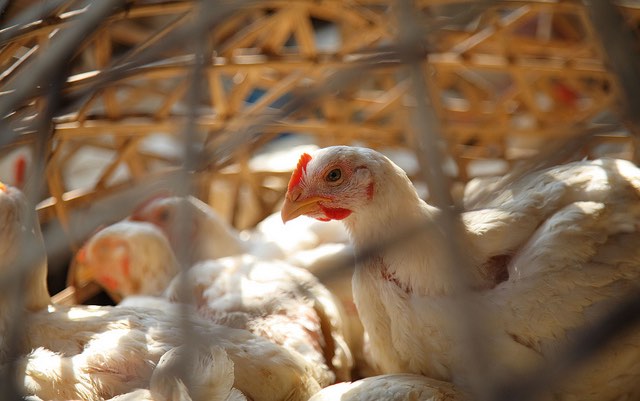Antibiotics and other antimicrobial drugs are among the most important tools available for fighting infectious diseases in humans and animals. Since the discovery of penicillin in 1928, they have dramatically improved quality of life around the world. Yet these drugs are increasingly failing. Growing antimicrobial resistance (AMR) by disease-causing bacteria and other microbes poses a major threat to global development; the World Bank estimates that annual global GDP could fall by more than $1 trillion by 2030 because of it.
While the World Bank also estimates that investments of $6 billion to $8 billion annually could mitigate this loss, at present, it seems the AMR problem will get rapidly worse before it gets better, and poses particularly grave challenges for developing countries.
To tackle this problem in low- and middle-income countries, CGIAR, the global research partnership for a food-secure future (IFPRI is a member), is forming an international hub to help integrate and channel research and development efforts. The hub, launching Feb. 21-22 in Nairobi, Kenya, will be led and hosted by the International Livestock Research Institute (ILRI) there.
Globally, huge quantities of antimicrobial drugs are used routinely to treat human diseases and administered in animal feed to provide healthy livestock and fish for food. Though specifics are unknown, the use of antimicrobials for livestock and in aquaculture is rising, particularly in low- and middle-income countries. There, they are often used in suboptimal ways: Dosages may be too small to be effective or applied over too long a time, causing environmental impacts; sometimes the wrong drugs are used, or antibiotics are used to treat diseases not caused by bacteria. Humans, livestock, and fish excrete these drugs, which leads to environmental contamination, including water systems. The main global driver of growing antimicrobial resistance in humans is overuse and misuse of antibiotics in medicine, which applies selective pressure for resistant pathogens. But antimicrobial use in agriculture to control animal and plant diseases also contributes to this problem (though the extent of agriculture’s contribution to resistance in humans is currently unknown).
The greatest challenges and burdens of the AMR problem will be felt by the poorest in poorer countries. These countries face the greatest and rising demand for increased food production to feed their rapidly growing populations. Their citizens tend to have poorer access to relevant knowledge, veterinary and health services. The countries also face challenges in enforcing regulations and understanding and implementing effective AMR surveillance.
With its mandate to improve the livelihoods of poor people, improve food and nutrition security and improve natural resource management through agriculture and food research, CGIAR is ideally positioned to tackle agriculture-related antimicrobial risks in developing countries and to develop, test and promote solutions to mitigate these risks together with its partners.
Like climate change and malnutrition, two other global challenges CGIAR works to address, AMR challenges us to use evidence and find ways to change people’s knowledge, attitudes, and behaviors. Any solutions will require combining technical, institutional, and policy innovations and leveraging the contributions of different sectors and disciplines, and both public and private actors.
The new CGIAR Antimicrobial Resistance Hub will work to foster learning from past experiences, support research excellence in the global south and ensure a critical mass of coordinated research to find suitable and sustainable solutions. ILRI will be joined in this effort by three CGIAR research programs—Agriculture for Nutrition and Health (A4NH), Fish, and Livestock—along with three CGIAR centers—IFPRI, the International Water Management Institute (IWMI) and WorldFish. Together, these seven research programs and institutions, along with their national partners and partner research organizations outside CGIAR, will support global research efforts among experts around the world, from low- to middle- to high-income countries.
For more information about the CGIAR Antimicrobial Resistance Hub, please visit https://amr.cgiar.org, or contact us on amr@cgiar.org, or contact Barbara Wieland (b.wieland@cgiar.org) or Delia Grace Randolph (d.randolph@cgiar.org).
Janet Hodur is a Communications Specialist with the CGIAR Research Program on Agriculture for Nutrition and Health (A4NH). This post also appears on the A4NH and Antimicrobial Resistance Hub sites.







